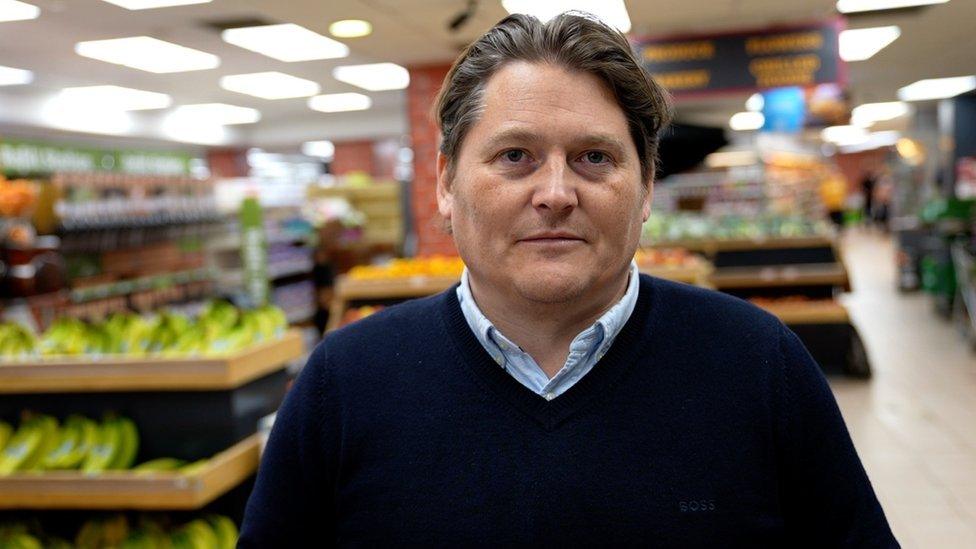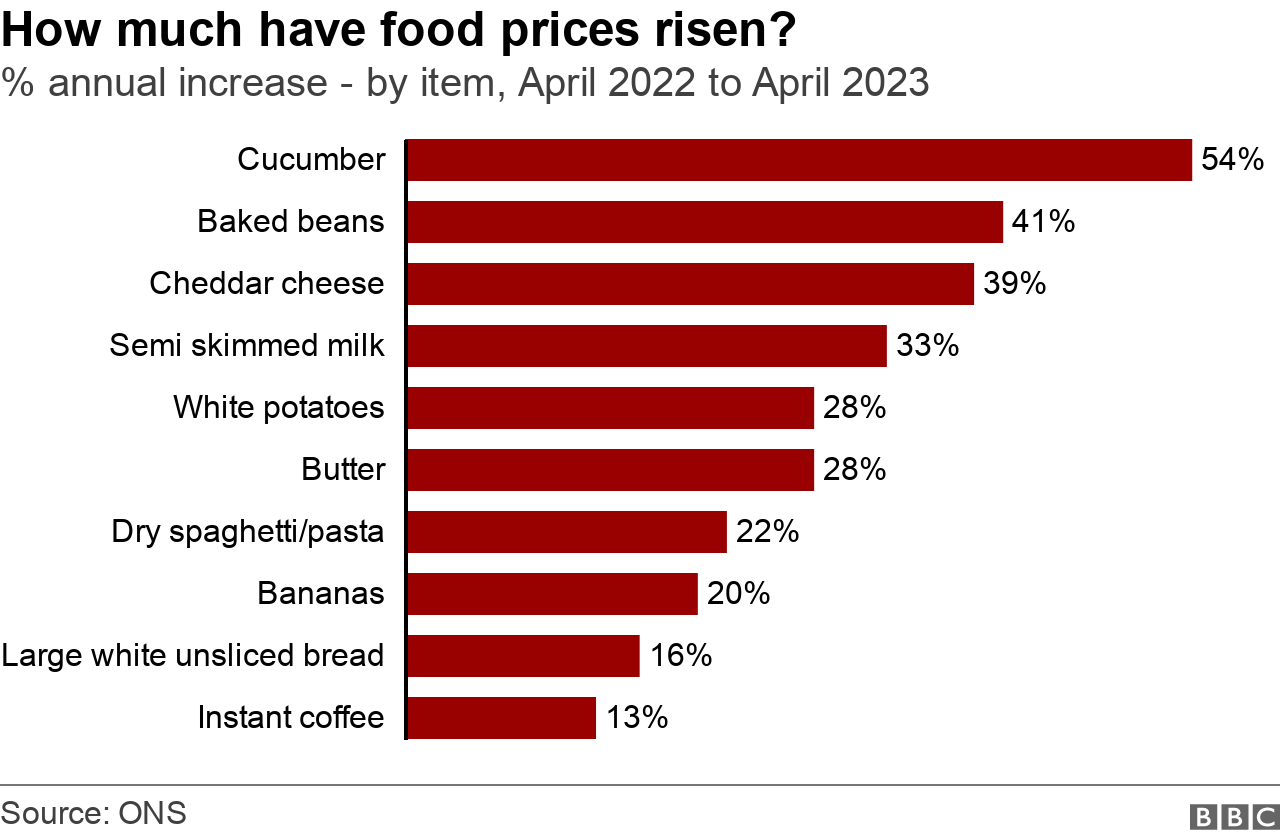Hard to control food prices, supermarket boss says

Supermarket boss Matthew Hunt: "Raw materials, energy, labour, taxation, interest rates, distribution costs - they all drive inflation"
At a glance
Food inflation costs are starting to slow, supermarket boss says
But it could be hard to get food price increases under control, warns Matthew Hunt
Food inflation hit 19.1% in the year to April with wider prices still 8.7% higher than a year ago
- Published
Food inflation costs are starting to slow but it could be hard to "get price increases under control", according to the boss of a Welsh supermarket chain.
Matthew Hunt, who runs independent Filco Supermarkets with nine stores across south Wales, said there was a "a road to go on this journey".
Latest figures showed food inflation hit 19.1% in the year to April.
Meanwhile, the UK government has delayed plans to ban two-for-one junk food deals for another two years.
Prime Minister Rishi Sunak said it would be unfair to restrict options when food prices remain high.
Ice cream flavour cuts could give you 99 problems
- Published20 May 2023
Farmers facing 'almost daily' price rises
- Published2 June 2023
Renters struggle to find housing as prices rise
- Published4 May 2023

Mr Hunt said there were "so many drivers" affecting food prices and it was "hard to see how we're going to get price increases under control".
"Raw materials, energy, labour, taxation, interest rates, distribution costs - they all drive inflation," he told BBC Radio Wales Breakfast.
"And while one of those might be getting under control, for example distribution with fuel, the others do seem to be rampant."
Mr Hunt was speaking after Tesco's boss said there were "encouraging early signs" that price rises were easing.
Mr Hunt has told BBC Wales that his company was not passing on the full cost increases to customers but "squeezing how we operate".
The rate at which food prices have been rising has been pointed out as one reason why the inflation rate for all consumer goods is not falling as quickly as expected, with prices still 8.7% higher than a year ago.
The UK government has floated the idea of a voluntary cap on basic food prices, but that's had a cold reception from the industry.